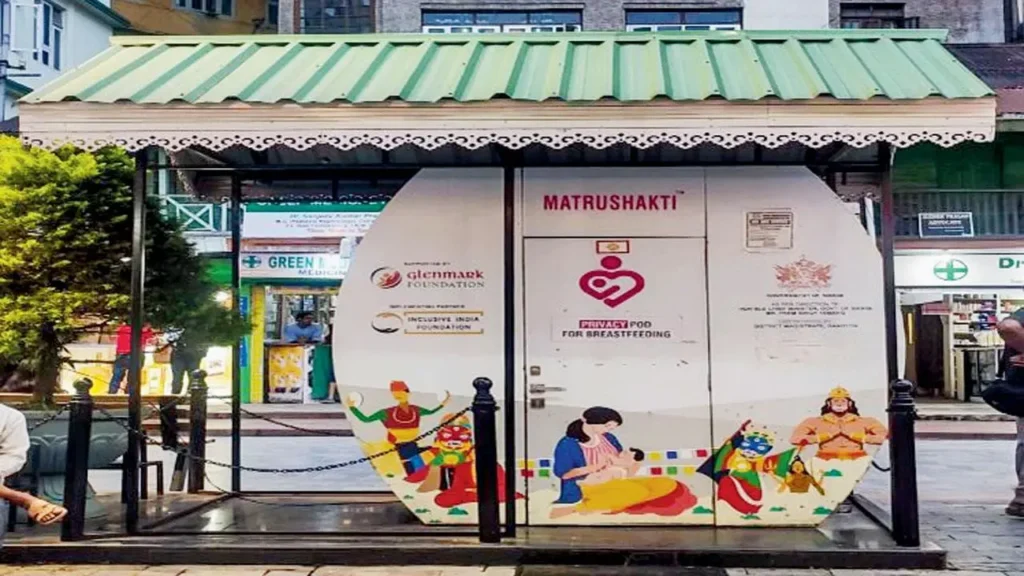In a country where public breastfeeding is often met with discomfort, judgment, or silence, the northeastern state of Sikkim is quietly transforming the experience of motherhood in public. Through a new initiative, clean, safe, and private breastfeeding pods are being installed in markets, hospitals, and transit hubs across the state — offering mothers the space, respect, and reassurance they have long been denied.
The program, led by the Municipal Corporation of Sikkim, is a pioneering effort in combining gender dignity, public health, and inclusive urban planning.
A Space of Her Own
The breastfeeding pods, modest in size but thoughtfully designed, are equipped with seating, lighting, and hygiene amenities. Mothers can breastfeed or pump in comfort, without being forced into stairwells, bathrooms, or behind makeshift curtains.
“These aren’t luxury installations. They are a basic necessity,” said a civic official involved in the rollout. “When a mother feeds her child, she should feel safe — not scrutinized.”
Over half a dozen pods have already been installed in key locations across Gangtok and Namchi, with more planned in both urban and semi-urban areas.
Each pod is accessible daily until 10:00 p.m., and CCTV surveillance outside ensures security without compromising privacy. Maintenance is being handled by municipal staff, with strict hygiene protocols in place.
Addressing an Invisible Struggle
In India, the lack of breastfeeding-friendly infrastructure forces millions of mothers to choose between feeding their children in public or waiting in discomfort — a choice that can affect both infant health and maternal mental well-being.
While breastfeeding is legally protected and medically encouraged, particularly in a child’s first six months, social stigma and lack of privacy remain powerful deterrents.
Sikkim’s approach tackles this challenge not through policy rhetoric, but through practical design.
More Than Infrastructure: A Cultural Message
The pods signal more than just convenience. They represent a cultural shift — one that acknowledges motherhood as a civic concern, not just a private burden.
Women’s health advocates and pediatricians have welcomed the move. “This initiative goes beyond child nutrition,” said Dr. Rina Gurung, a pediatrician in Gangtok. “It validates women’s presence in public spaces without compromise.”
A Template for Other States?
As India continues to debate what inclusive urbanism should look like, Sikkim’s modest pods offer a powerful template. Unlike high-cost infrastructure projects, these units are relatively inexpensive — yet their impact on dignity, access, and equity is substantial.
In a landscape where gender-sensitive design is often an afterthought, Sikkim is demonstrating how policy empathy and design logic can work together.
A Small Pod, A Giant Step
For now, mothers in Sikkim no longer need to hide. They don’t have to feed their children behind parked cars or inside public restrooms. They have a place — and, with it, a kind of recognition that has long been missing.
And in that small, quiet space, the state is telling its mothers: you belong here, too.


